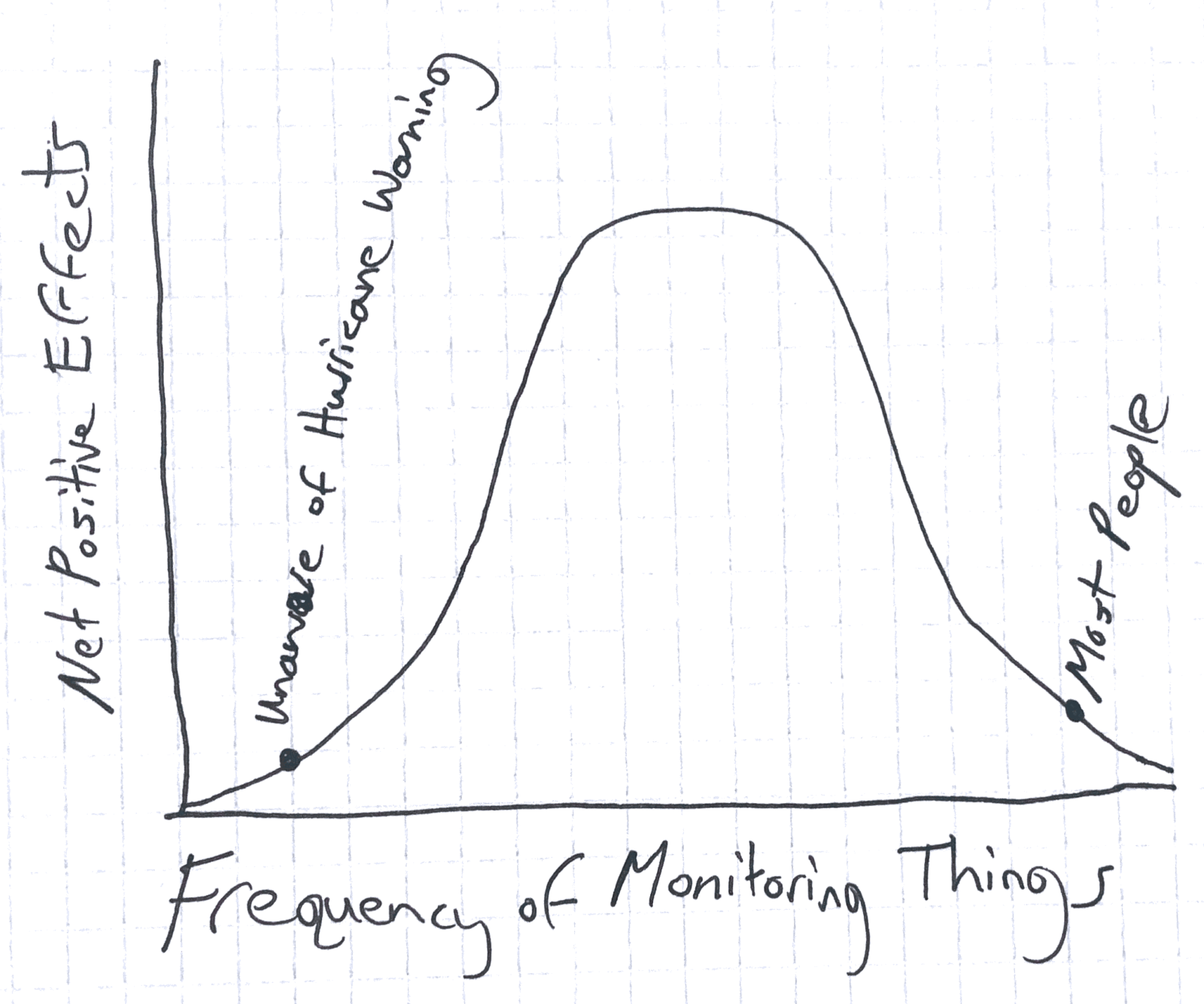If you’re not familiar, the Oura Ring is a wearable that tracks health variables and biometrics like heart rate variability (HRV), steps, REM and deep sleep, etc. I bought it explicitly for sleep tracking as nothing throws me off course faster than poor sleep; I wake up after a terrible night’s sleep looking for the “skip” button for my entire day.
How fun is it for an obsessive personality to wake up every morning and get REAL-TIME feedback on how you did? Doing this daily provides the illusion of control when in reality you can’t do anything to change your previous night’s sleep or actions leading up to it. Further, you probably shouldn’t make future decisions based on a single day or point of data. Checking the app every morning became a chew toy for me until I gnawed off my hand in the process.
People like me take the phrase, “In God we trust, all else bring data,” a little too seriously; you start to feel more tired because your Oura Ring app tells you as much. The counterproductive effects of stressing about your poor or imperfect (for an optimizer) sleep are too much to bear; I love nothing more than buying a health gadget that makes me less healthy because then I can hit the trifecta of being dumb, out 400 bucks, and more anxious.
Use the tool, don’t let the tool use you. I now put the Oura Ring on airplane mode (which has the added bonus of mitigating Bluetooth EMF exposure) and check it once a week to reflect on my week and most importantly check the Trends section of how I am doing week-over-week. Getting a longer-range view allows you to make more educated and less impulsive decisions. You can then decide one or two variables to improve upon, maybe as simple as going to bed earlier. Better decisions, less intra-week stress about daily performance (together which is formally known as ‘more better’).
This logic of signal over the noise applies to almost everything and I stopped checking the stock market daily for the same reason to avoid hyper-reactive decisions and emotions. The trends through time tell the truest tale (alliteration for the win, and the acronym TTTTTTTTTTT).
Some examples and personal observations of over-biasing monitoring over intelligently managing:
- Checking Oura Ring daily = Feel more tired = Negative placebo effect
- Checking stock market daily = Tempted to or actually make impulsive decisions that are statistically proven to yield poorer financial performance over time than if you dollar-cost averaged your way in or had an otherwise systematic approach + Wasted decision fatigue and time + Ability to comment on the markets to sound smarter than you are and impress people you don’t like anyway
- Checking Instagram daily = Get fewer things done that would make you worthy of posting anything interesting on Instagram to begin with + Surreptitiously start to feel less adequate about yourself comparing your low-lights to everyone else’s stratospheric highlights
- Checking Hinge daily = false sense of hope watching grenades “like” you
- Checking Facebook daily = watch my two conspiracy theorists friends ramble into the outer orbit of fact-hood
- Checking the news daily = I’m not even going to bother explaining this one if you made it this far
Pro tip: Don’t rely on willpower to avoid checking things, but rather distance yourself by using airplane mode or deleting the apps; if you don’t want to slip, don’t go where it’s slippery.
Control what you can and leave the rest.
Be proactive instead of reactive.
Opt for productivity over busyness.
“Avoid the crowd. Do your own thinking independently. Be the chess player, not the chess piece.”
― Ralph Charell
Now if you’ll excuse me, my phone just vibrated.
